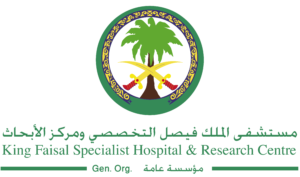Reducing infant mortality using predictive rapid exome sequencing in combination with personalized diagnostics.

Pitch Initiative:
Our initiative, launched in March 2018, harnesses Rapid Exome Sequencing (RES) to transform genetic diagnosis and management for critically ill neonates in a highly consanguineous population. Research by the National Library of Medicine indicates that in the Kingdom of Saudi Arabia (KSA), 57.7% of families screened were consanguineous, with first cousin marriages at 28.4%, distant relative marriages at 15.2%, and second cousin marriages at 14.6%, in a population of approximately 37,265,668. This initiative stands out for its rapid, precise diagnostic capabilities, crucial for making urgent clinical decisions in specialized settings, especially in a demographic where genetic disorders are common. Eligible cases for our RES include: (a) prenatal situations requiring decisions on pregnancy termination within a strict timeframe, due to national cultural and legal guidelines, (b) intensive care scenarios where an unclear diagnosis obstructs effective management, and (c) urgent transplant eligibility assessments. Utilizing an amplicon library that covers 96% of coding regions – meaning that the analysis includes nearly all the genomic areas that can produce
proteins- sequenced via the Ion Torrent Next-Generation Sequencing (NGS) platform, our methodology integrates sequence alignment, variant calling, and annotation through a sophisticated pipeline. This includes the Burrows Wheeler Aligner (BWA), Samtools, the Genome Analysis Toolkit (GATK), and Annovar, with variant interpretation following American College of Medical Genetics and Genomics (ACMG) guidelines.
While rapid genomic diagnostics are being implemented in various parts of the world, the specific focus on a highly consanguineous population, the rapid turnaround time, and the comprehensive diagnostic methodology tailored to the local context make the KFSH&RC’s initiative particularly unique. It not only addresses the immediate needs of critically ill neonates but also contributes to broader healthcare improvements The initiative’s impact has been significant, influencing management strategies in over 94% of 80 cases and enabling critical decisions for numerous transplant cases. This rapid turnaround— achievable within 28 hours from sample receipt—demonstrates the profound benefits of
integrating RES into patient care, significantly reducing healthcare costs through the avoidance of unnecessary treatments and interventions. We are currently scaling this initiative, aiming to include 1000 cases nationwide, reflecting the
vast potential for upscaling. The addition of Rapid Whole Genome Sequencing to our diagnostic arsenal promises to further broaden our impact across diverse populations. This expansion not only aims to enhance our diagnostic capabilities but also sets a precedent for the application of rapid genomic diagnostics globally, underscoring our commitment to advancing healthcare through innovation.
By fostering a continuous learning cycle, each case enriches our genetic database, enhancing the accuracy and efficiency of future diagnoses. This structured approach to data utilization not only improves patient outcomes but also provides valuable insights into rare genetic diseases, potentially informing future healthcare policies and practices. Our initiative stands as a beacon of innovation in Value-Based Health Care, promising to transform the landscape of genetic diagnostics and patient management in Saudi Arabia and beyond. With our focus on scalability and broadening our diagnostic capabilities, we are poised to make a lasting impact on healthcare delivery for critically ill neonates across diverse populations.
